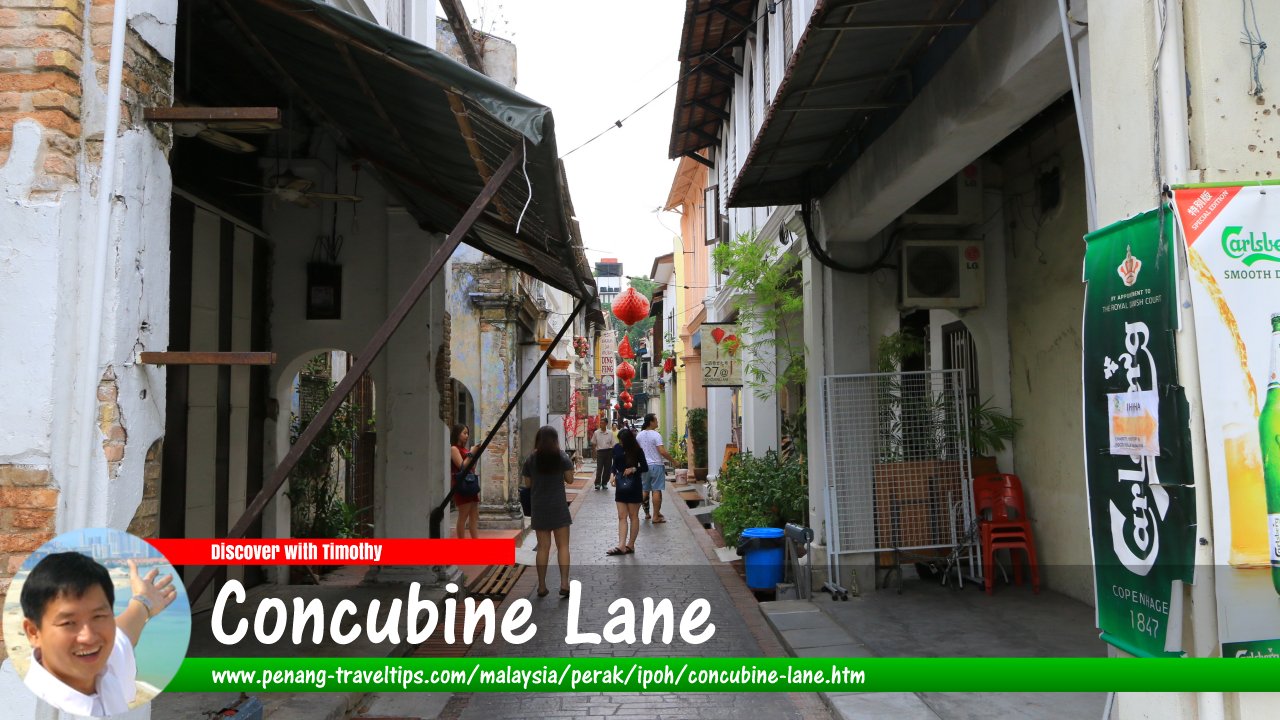 Concubine Lane (Lorong Panglima), Ipoh (3 May, 2016)
Concubine Lane (Lorong Panglima), Ipoh (3 May, 2016)
Concubine Lane (GPS: 4.59632, 101.07794) is a narrow lane in downtown Ipoh, Perak. It connects Jalan Sultan Yusuf with Jalan Bijeh Timah, and is intersected down the middle by Jalan Bandar Timah. The official name of this lane is Lorong Panglima. It is most likely named after Panglima Kinta Muhammad Yussuf, who owned the paddy field land on which the lane was developed.
A narrow lane with townhouses hemmed in on both sides, Concubine Lane has today morphed into a tourist haven, with most of the properties occupied by cafés, galleries and souvenir shops. This most happening is the section between Jalan Bijeh Timah and Jalan Bandar Timah, while the other lanes are more subdued, even forlorn.
Along with Lorong Hale and Lorong Market, Lorong Panglima constituted the red light area of Ipoh Old Town. In Cantonese, they were known as the First, Second and Third Concubine Lanes. During the tin-mining heydays, these three lanes were where the coolies from the mines came to look for prostitutes and opium. The lanes were lined with brothels and opium dens, during an age when such activities were conducted in a less-than-discreet manner. Over time, Concubine Lane became the place where tycoons deposited their concubines. These girls who exists solely to give rich men worldly pleasures are cloistered away from sight down this lane, visited discreetly. They did not hold any position in the men's family, and may have existed without the wives' knowledge.
In 2011, I wrote that there had been interest to gentrify the lanes while preserving the history for posterity. However, the amount of restoration conducted back then had been minimal. Many of the houses were then in an advanced stage of disrepair, having been taken over by vegetation. At that time Concubine Lane was being gnarled away by the elements.
This was to change in the subsequent years, and continued to gather pace. When I revised my write up in 2018, Concubine Lane has become a tourist haven, with many souvenir shops, kiosks and restaurants.
The common believe is that Concubine Lane was where the rich men of Ipoh, of the late 19th and early 20th century, housed their concubines. Of these men, the richest of them all is most likely the one who had the properties along the lane built - the tin mining and properties tycoon, Yau Tet Shin.
To be exact, there are three such lanes in the Ipoh Old Town. All three lanes connects Jalan Sultan Yusuf to Jalan Bijeh Timah, and is intersected in the middle by Jalan Bandar Timah.
The main "Concubine Lane" is Lorong Panglima. This is said to be where Yau Tet Shin housed his concubine. It is known in Chinese as 二奶巷 (Mandarin Pinyin: Èr Nǎi Xiàng, Cantonese Jyutping: Ji6 Naai5 Hong6), meaning "second spouse lane". By the name in Chinese, we can gather that this is the residence of the second wife.
The first wife has her own lane, which is Lorong Hale while the third wife is housed at Lorong Market.
Map of Concubine Lane, Ipoh
Concubine Lane is  on the Map of Sights in Perak
on the Map of Sights in Perak
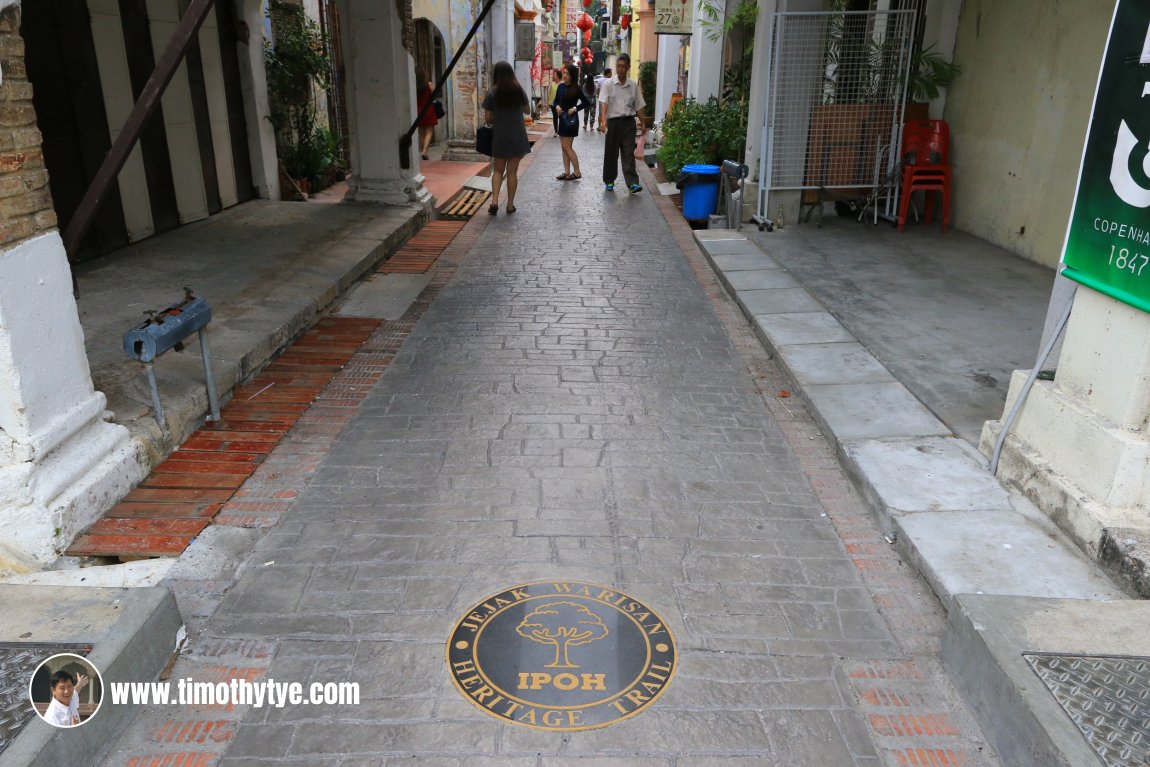 Ipoh Heritage Trail crest at Concubine Lane. (3 May, 2016)
Ipoh Heritage Trail crest at Concubine Lane. (3 May, 2016)
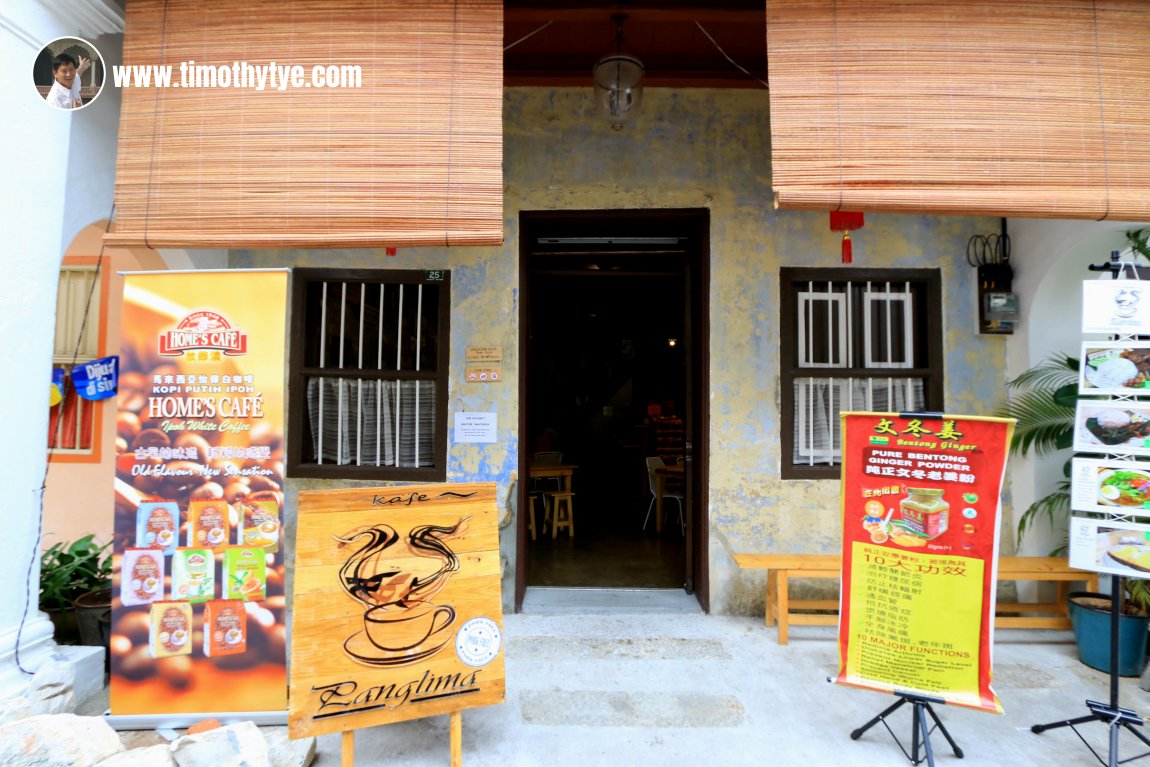 Café at Concubine Lane. (3 May, 2016)
Café at Concubine Lane. (3 May, 2016)
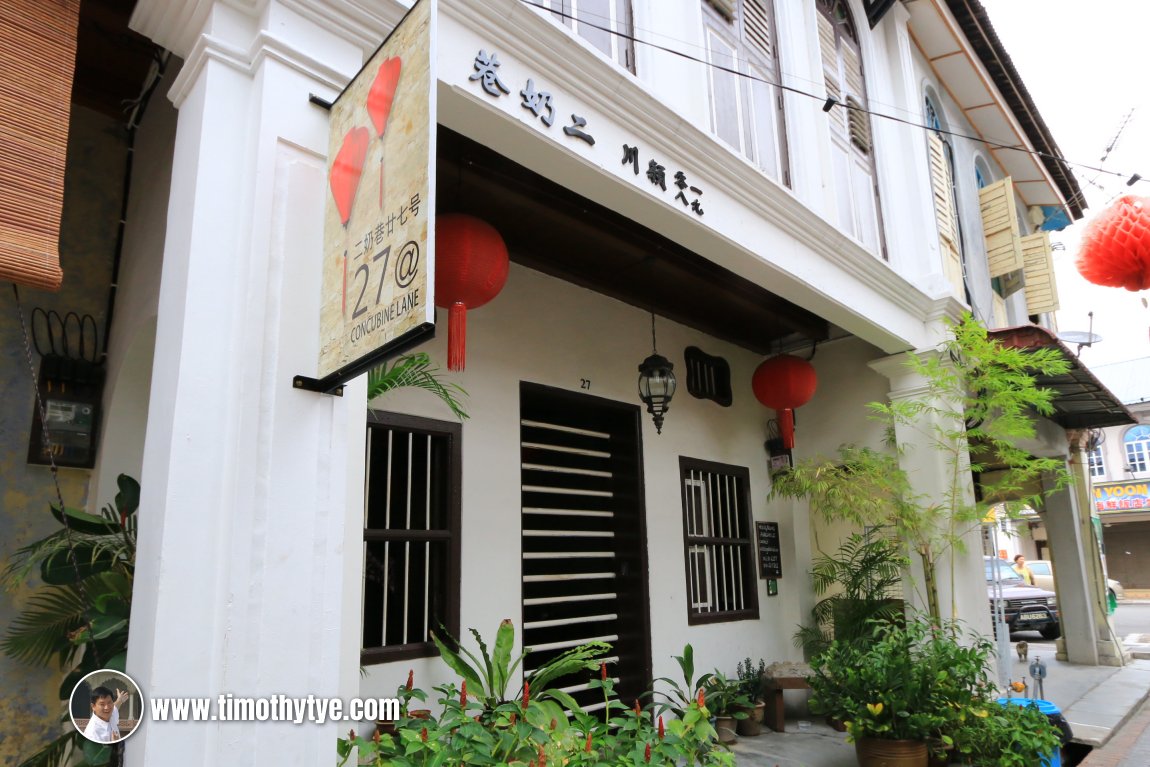 Restored townhouse on Concubine Lane. (3 May, 2016)
Restored townhouse on Concubine Lane. (3 May, 2016)
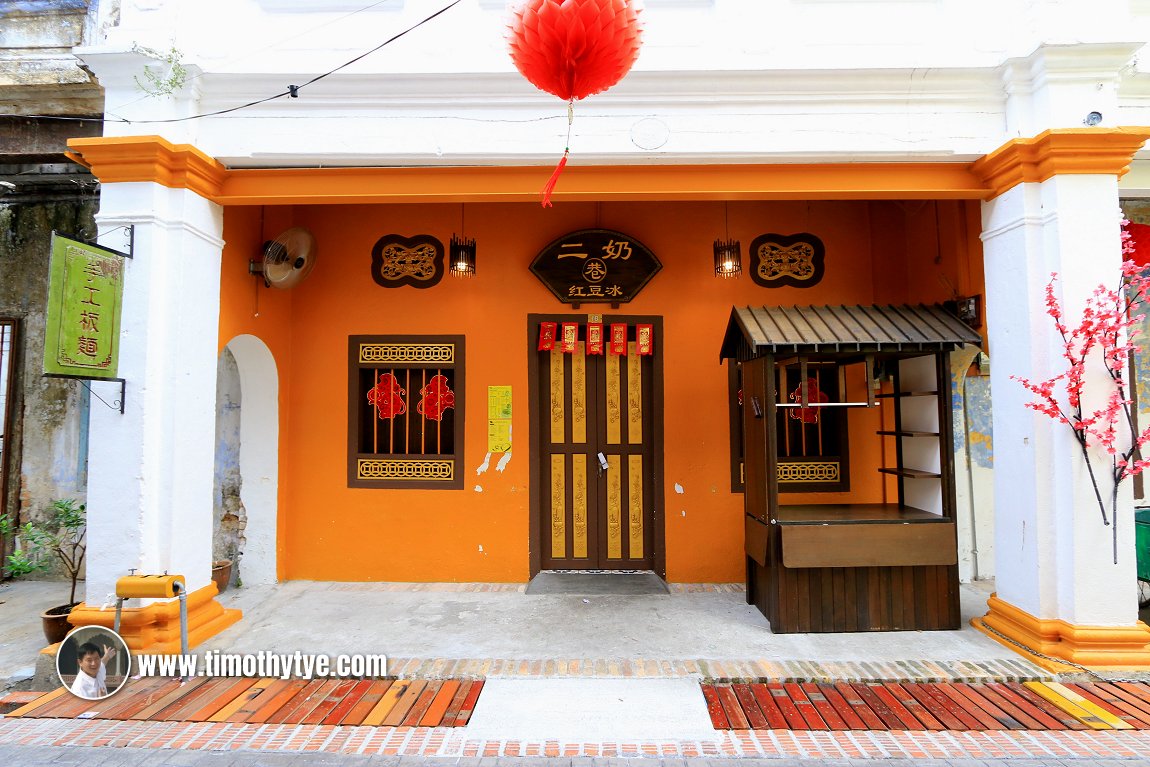 House on Concubine Lane. As with so many of the restored properties, this has been converted into a shop. (3 May, 2016)
House on Concubine Lane. As with so many of the restored properties, this has been converted into a shop. (3 May, 2016)
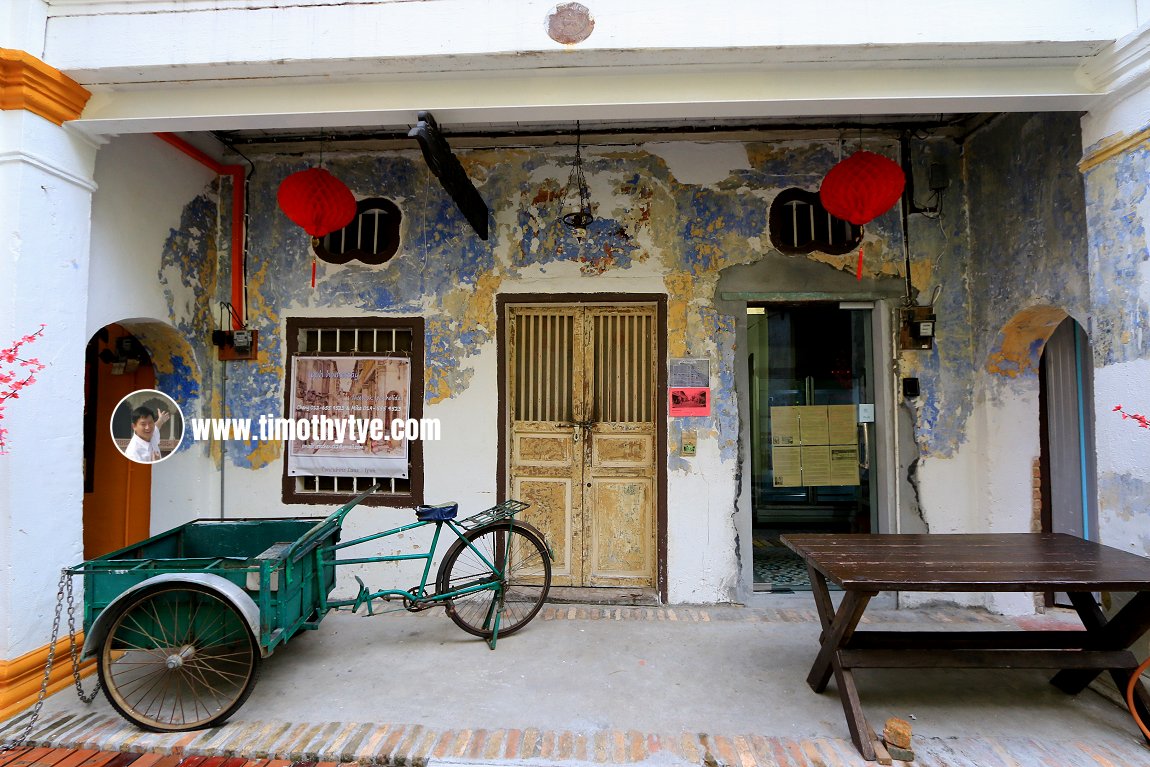 This house has been converted into a homestay. (3 May, 2016)
This house has been converted into a homestay. (3 May, 2016)
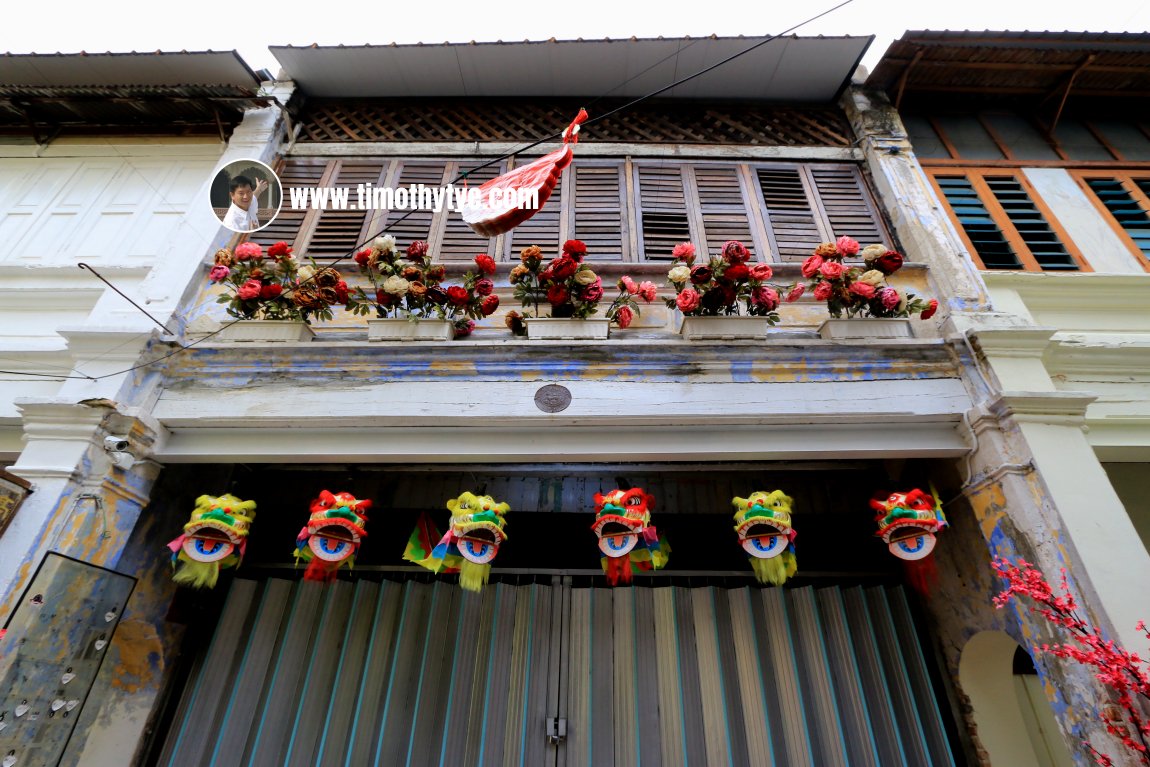 Artificial flowers and Chinese lion heads hanging at a shop closed for the day. (3 May, 2016)
Artificial flowers and Chinese lion heads hanging at a shop closed for the day. (3 May, 2016)
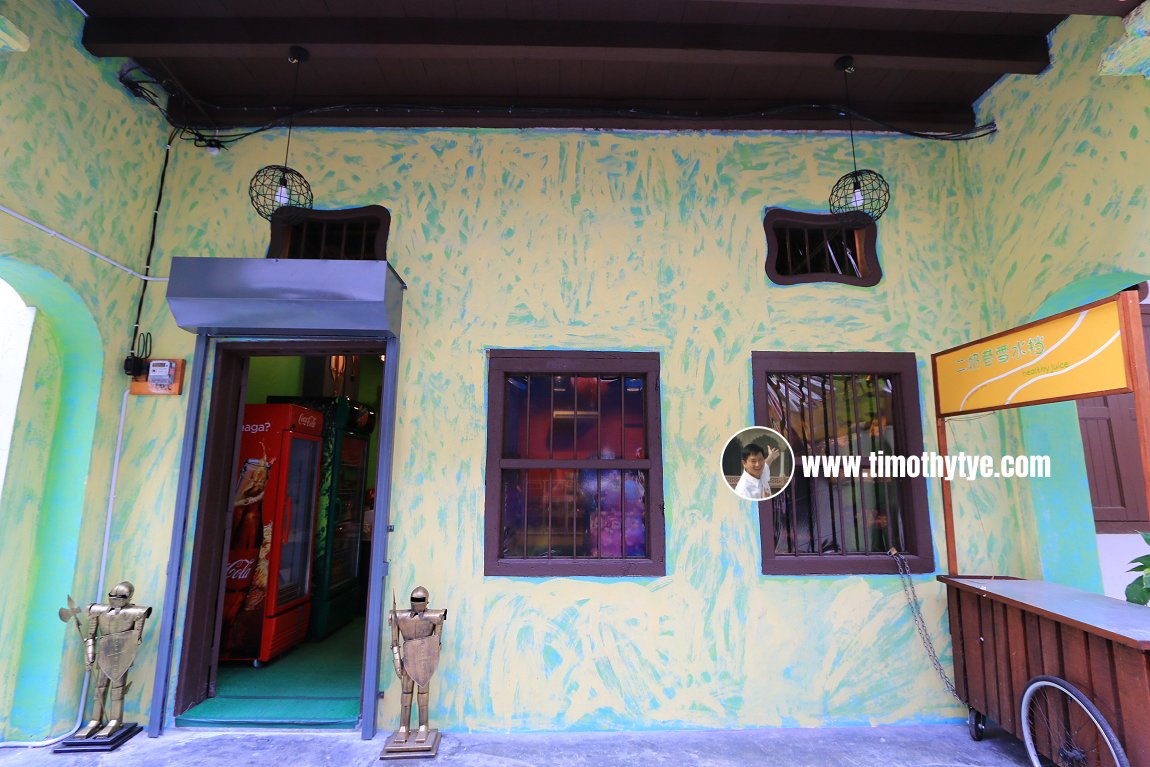 As with so many of the shops on Concubine Lane, this one was originally a private residence. (3 May, 2016)
As with so many of the shops on Concubine Lane, this one was originally a private residence. (3 May, 2016)
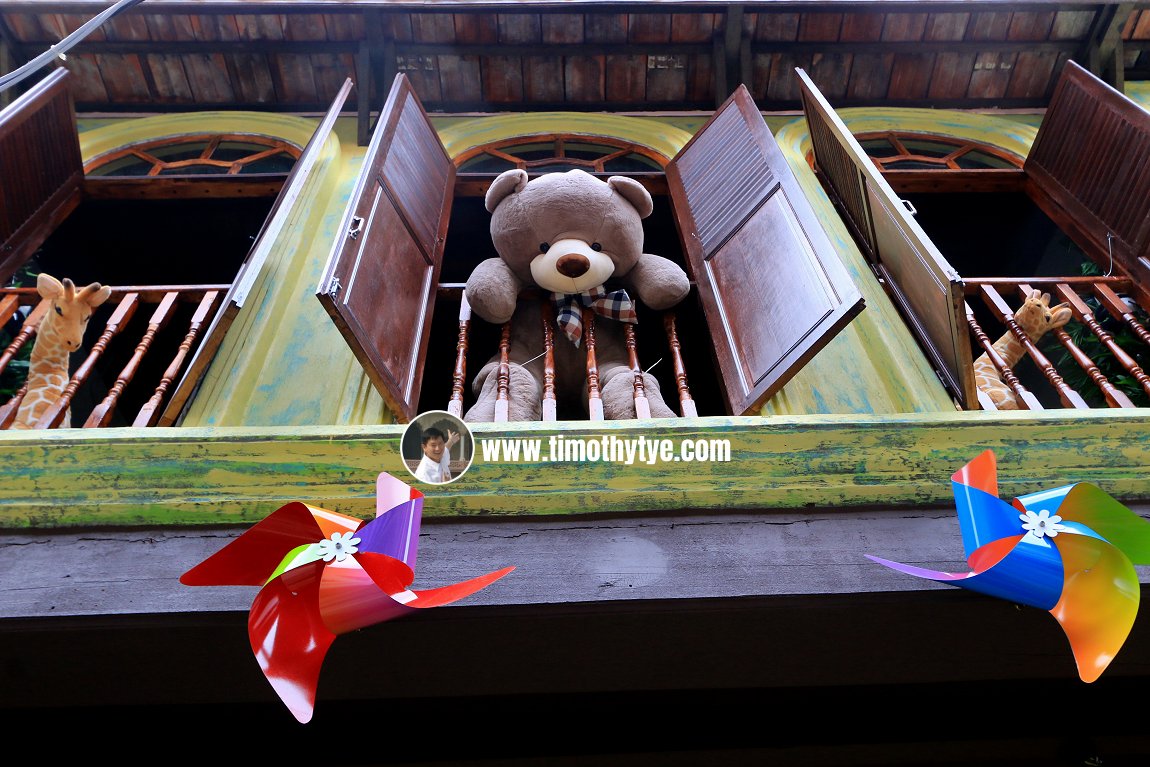 Giraffes and a giant teddy bear looked down from the French windows above. (3 May, 2016)
Giraffes and a giant teddy bear looked down from the French windows above. (3 May, 2016)
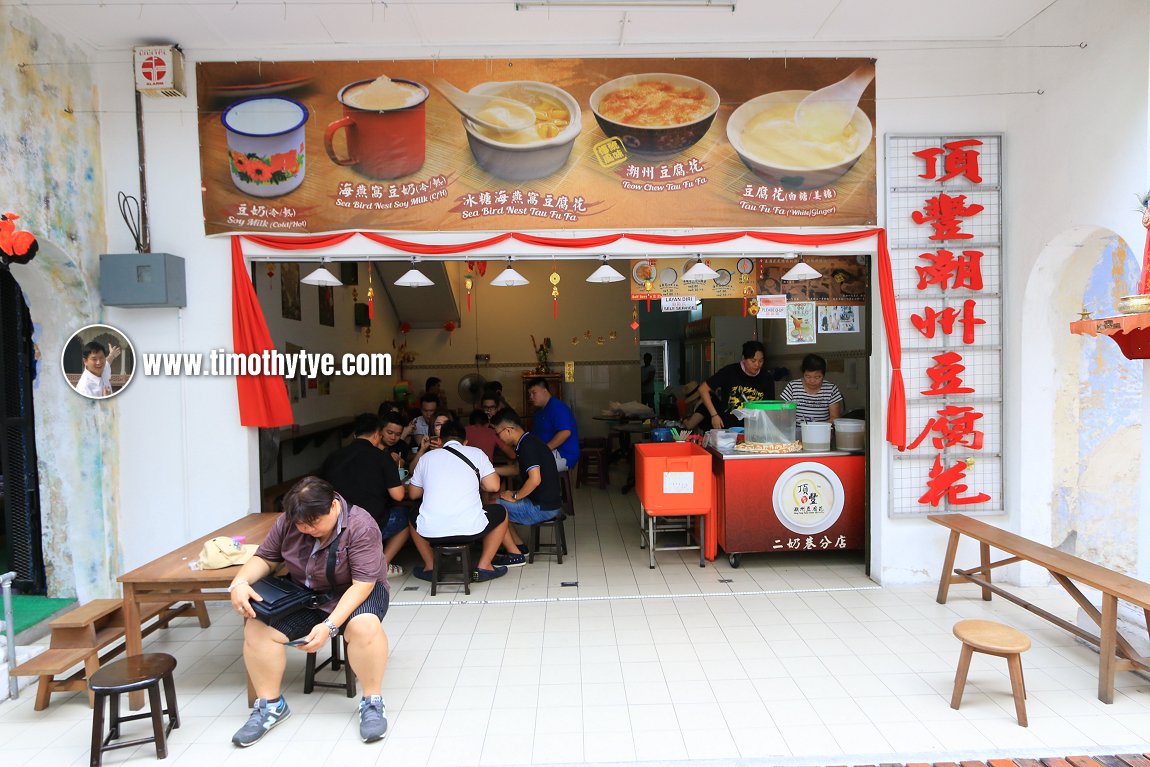 Shop selling soy milk doing good business at Concubine Lane. (3 May, 2016)
Shop selling soy milk doing good business at Concubine Lane. (3 May, 2016)
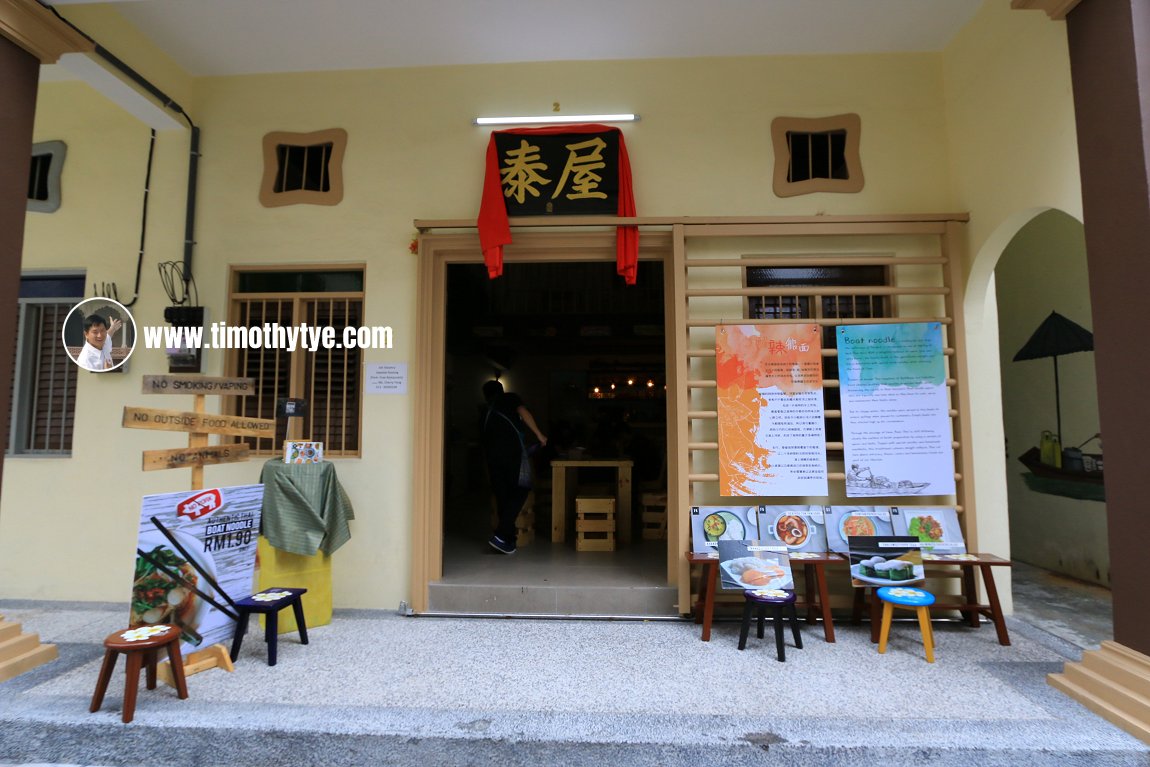 Shop selling boat noodles at Concubine Lane. (3 May, 2016)
Shop selling boat noodles at Concubine Lane. (3 May, 2016)
Concubine Lane, before its commercialisation
I walked through and photographed Concubine Lane in 2011. At that time, commercialisation has not reached the entire stretch of the lane, so I was able to photograph sections of it that were still quite empty. If you walk through this same stretch today, you will find that it has turned into a tourist trap, which is stimulating the local economy.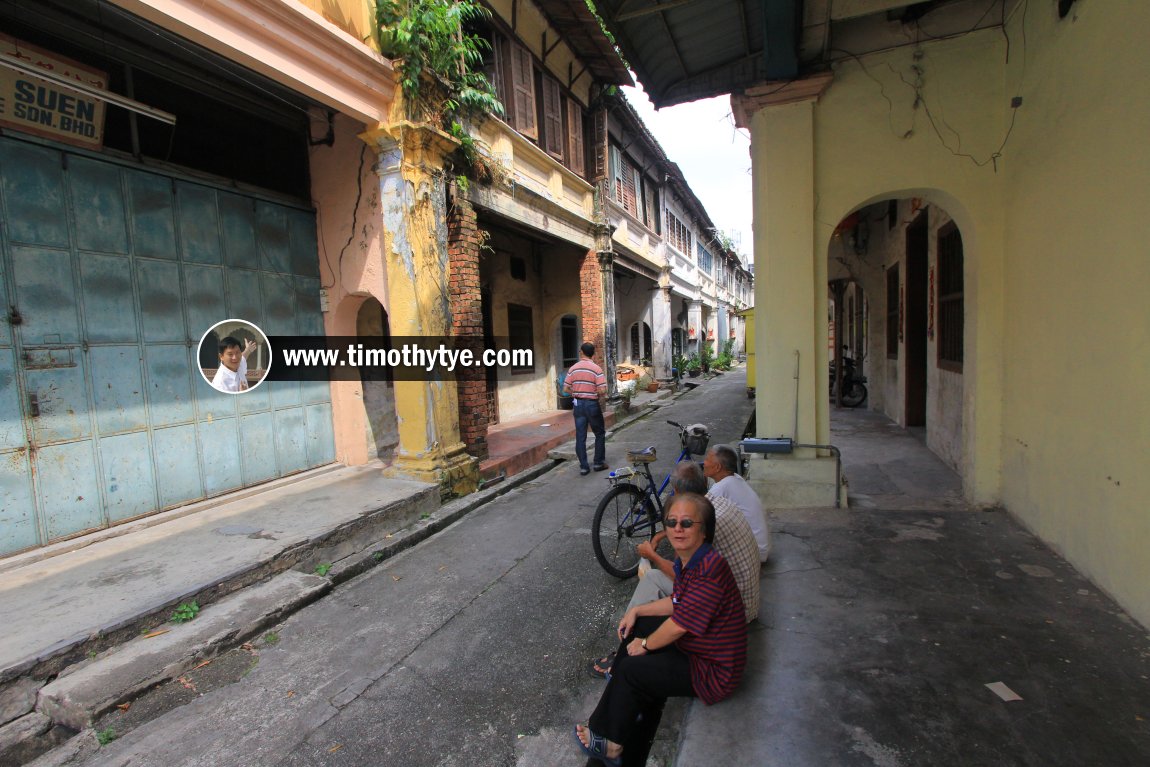 Empty shophouses along Concubine Lane. (18 June, 2011)
Empty shophouses along Concubine Lane. (18 June, 2011)
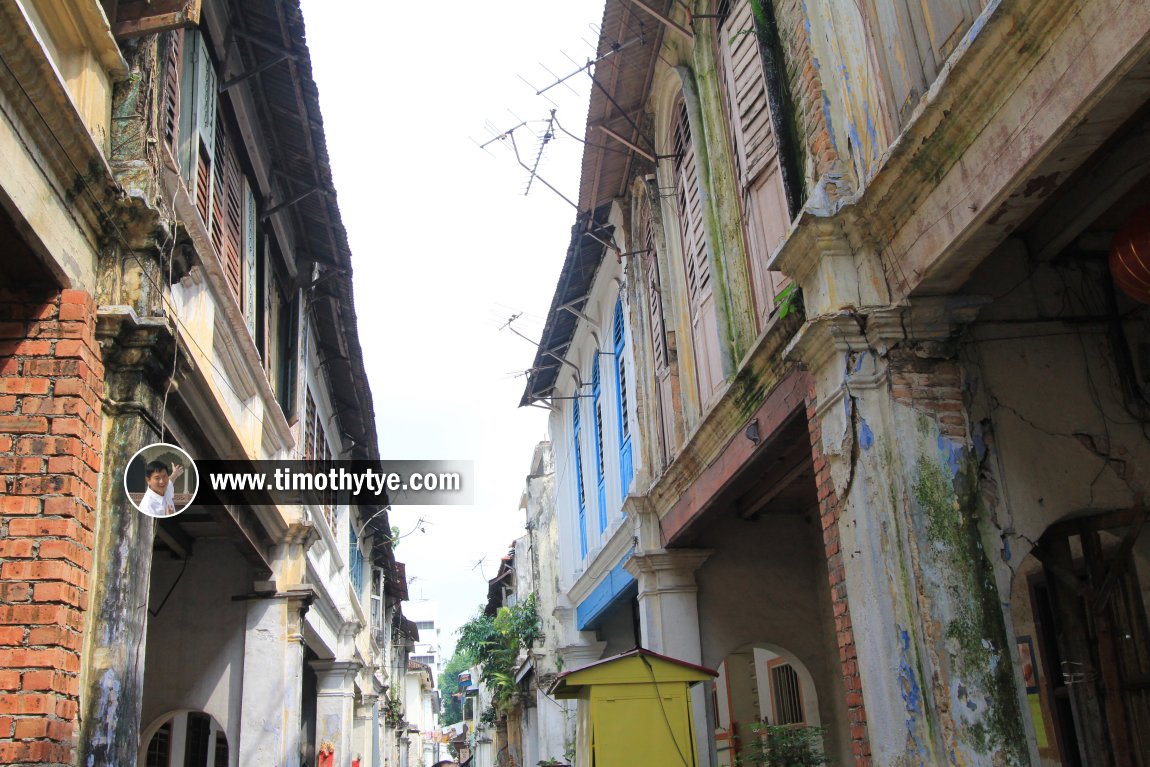 Empty shophouses along Concubine Lane. (18 June, 2011)
Empty shophouses along Concubine Lane. (18 June, 2011)
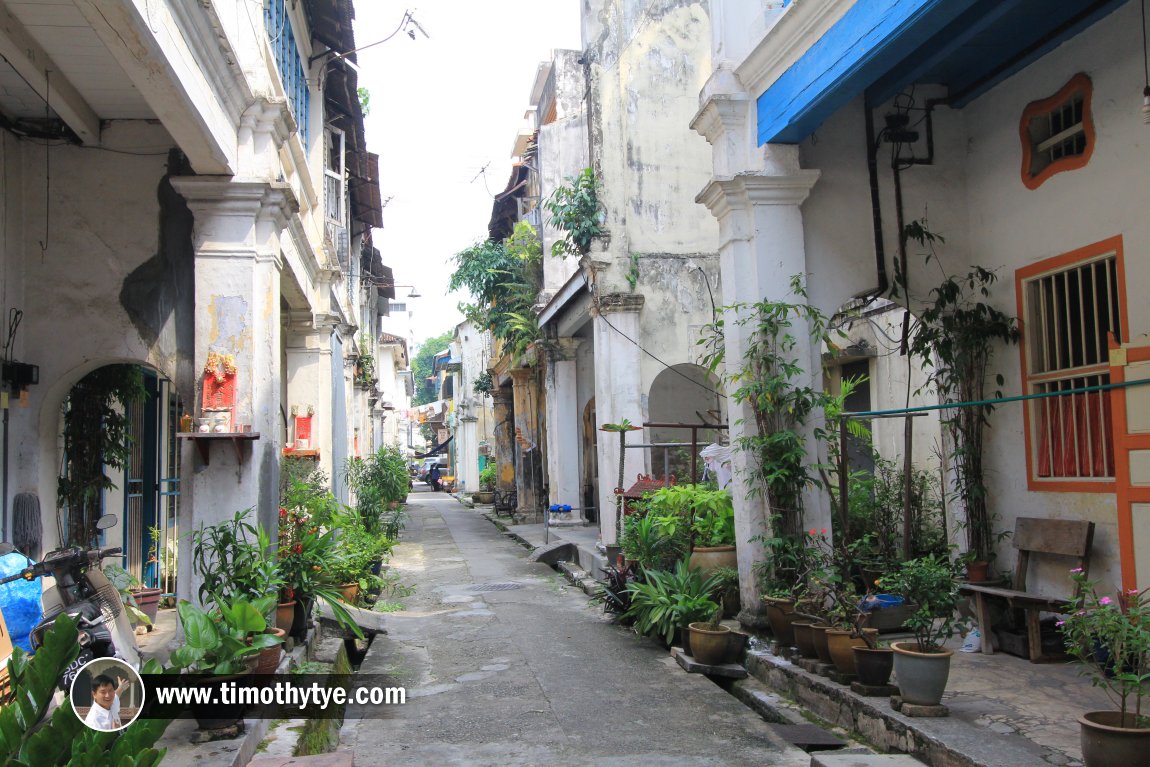 No shops here, just people occupying these townhouses as their homes. (18 June, 2011)
No shops here, just people occupying these townhouses as their homes. (18 June, 2011)
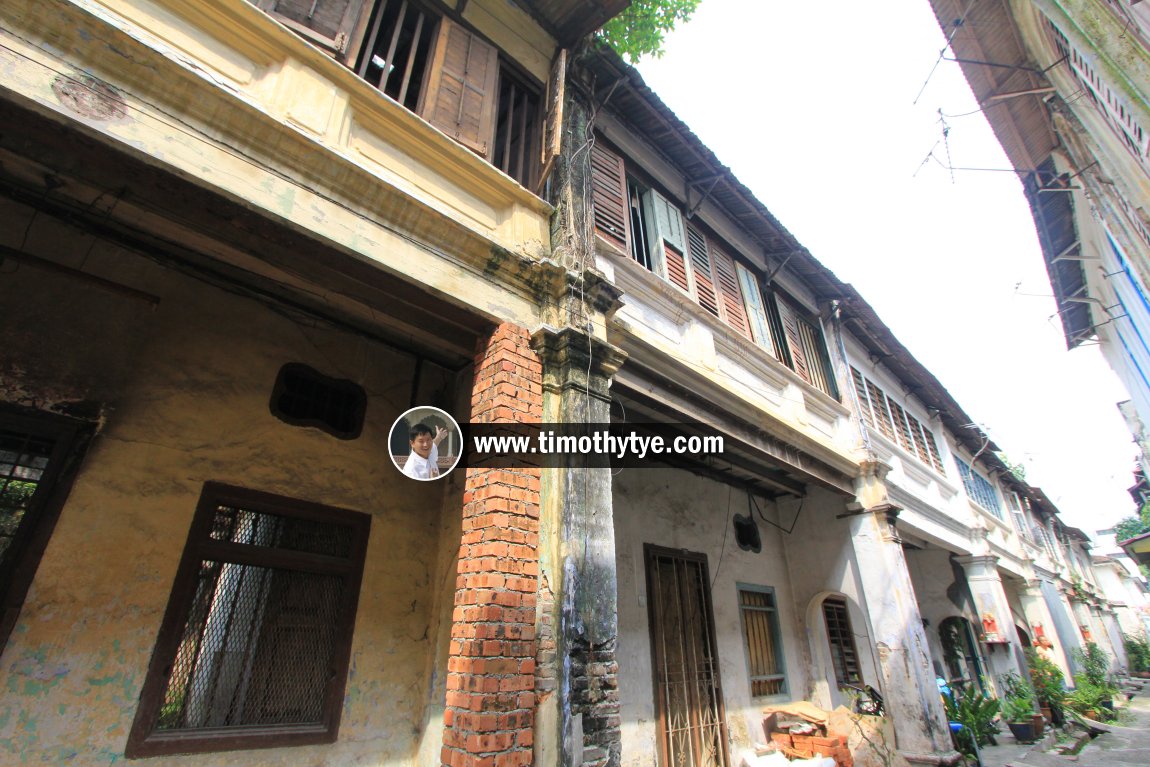 Some of the houses at Concubine Lane have their insides gutted. (18 June, 2011)
Some of the houses at Concubine Lane have their insides gutted. (18 June, 2011)
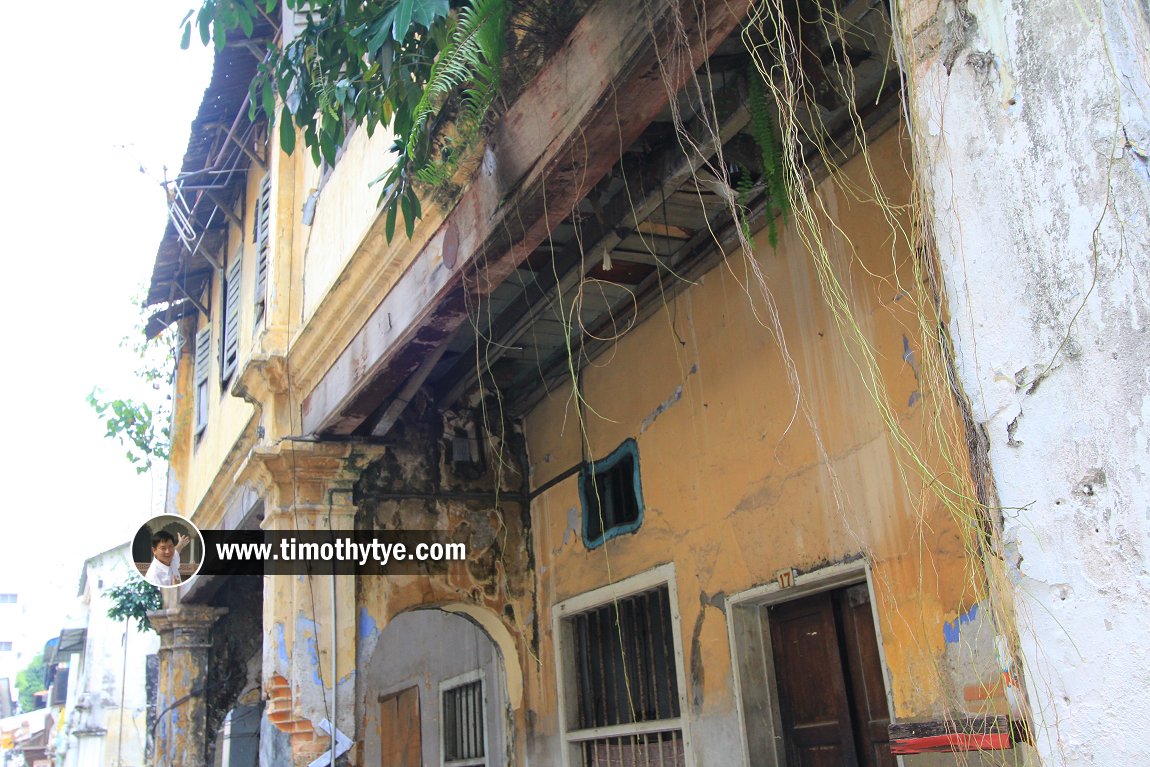 In 2011, there were a lot of abandoned houses on Concubine Lane. (18 June, 2011)
In 2011, there were a lot of abandoned houses on Concubine Lane. (18 June, 2011)
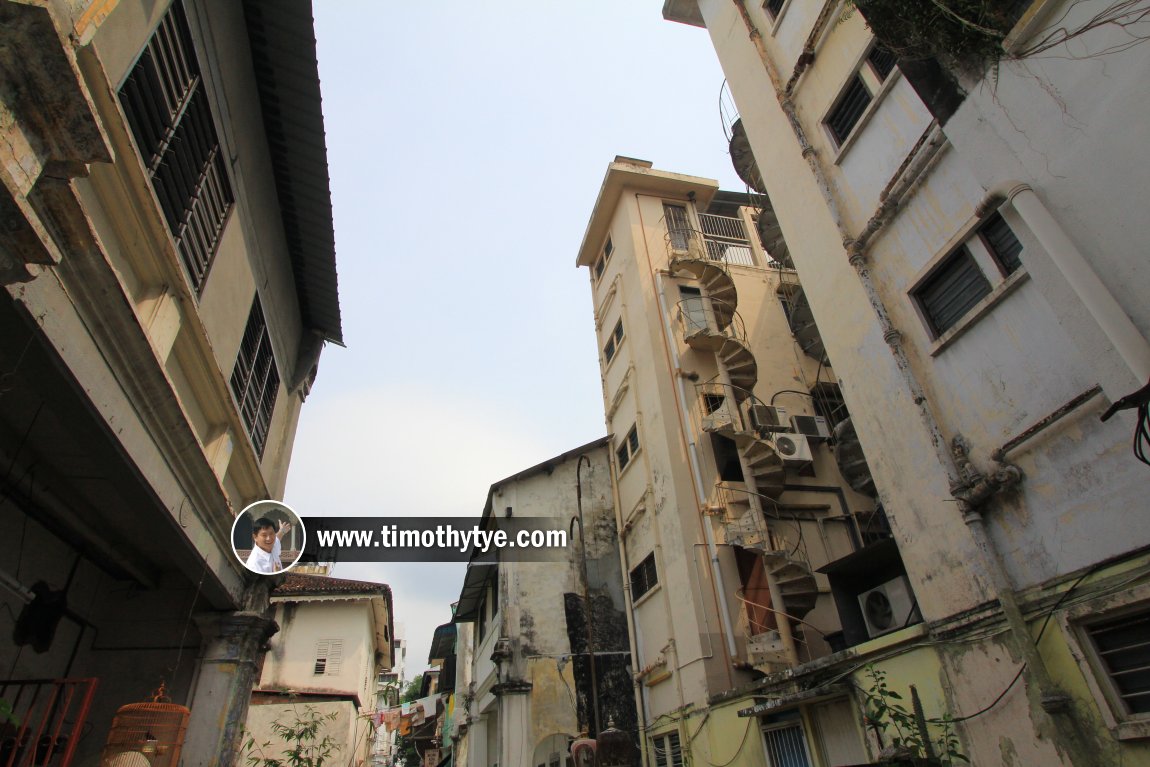 This early high rise is a later addition to Concubine Lane. (18 June, 2011)
This early high rise is a later addition to Concubine Lane. (18 June, 2011)
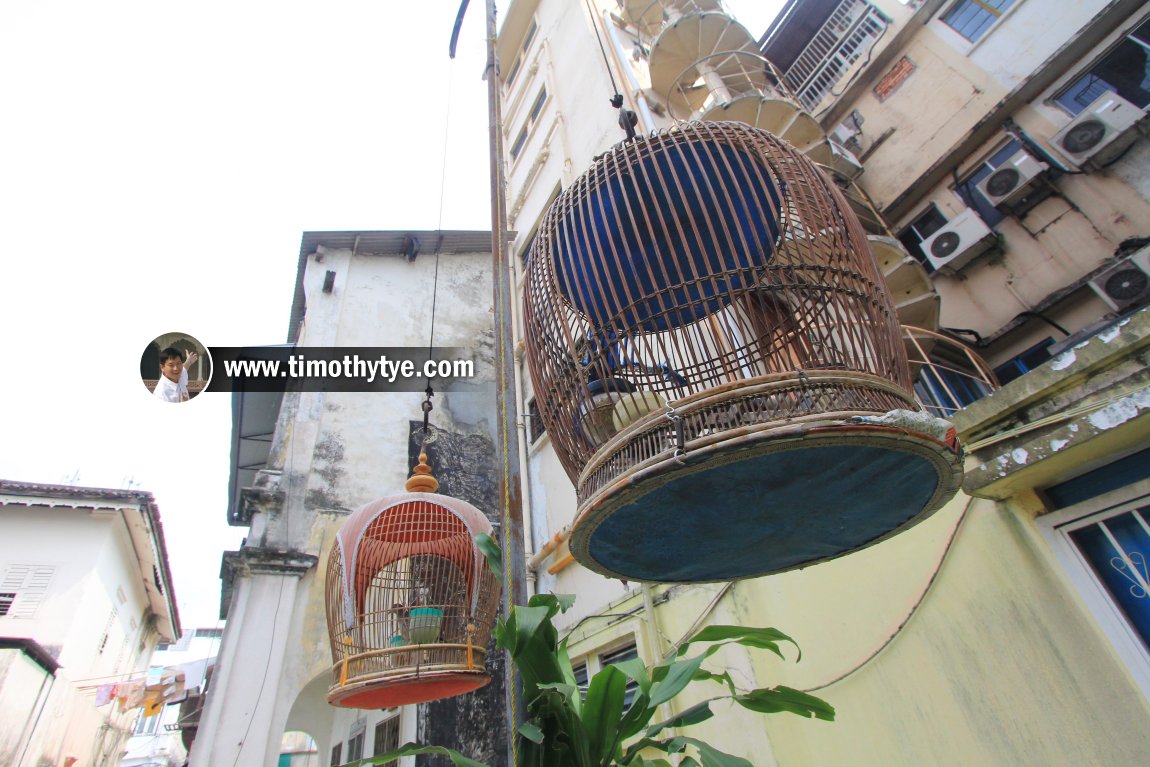 Signs of life - bird cages hanging on poles on the eastern end of Concubine Lane. (18 June, 2011)
Signs of life - bird cages hanging on poles on the eastern end of Concubine Lane. (18 June, 2011)
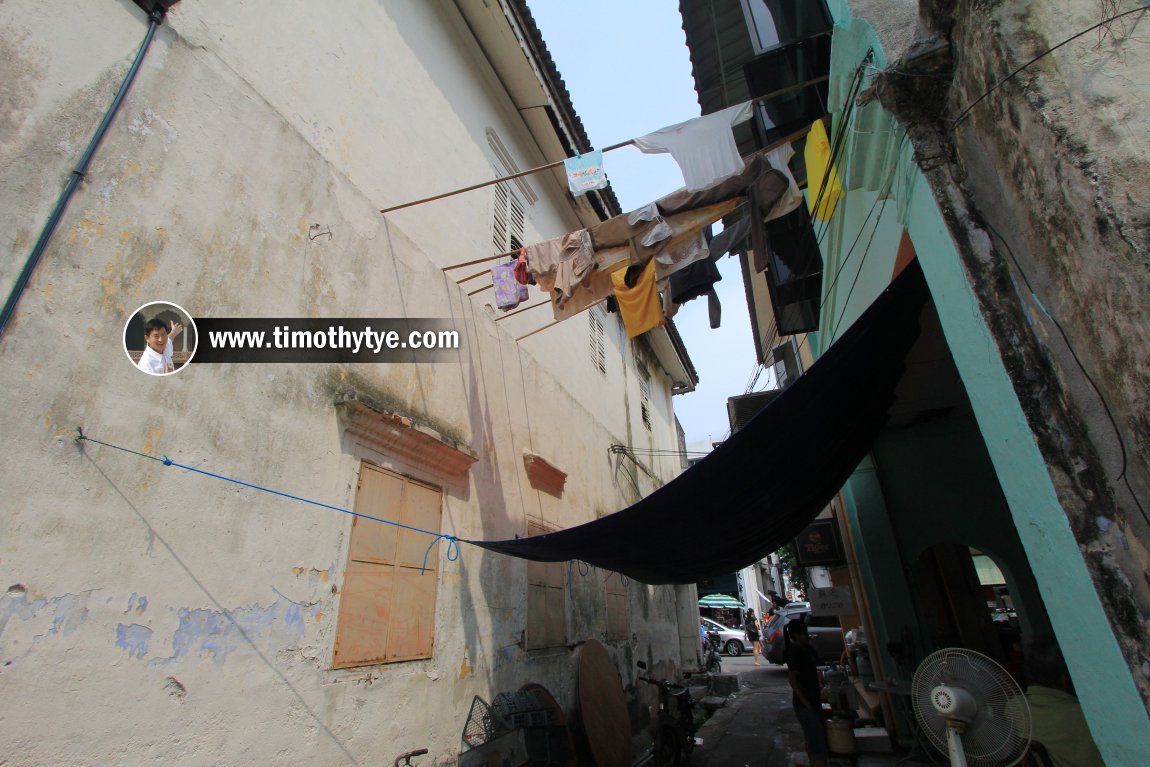 Clothes hung out to dry on Concubine Lane. (18 June, 2011)
Clothes hung out to dry on Concubine Lane. (18 June, 2011)
Concubine Lane on Google Street View
Concubine Lane (Dec 2017)Back to Discover Ipoh, Perak; list of Streets of Ipoh, Streets of Perak and Streets of Malaysia
 Latest updates on Penang Travel Tips
Latest updates on Penang Travel Tips
 Ipoh Sight Index
Ipoh Sight Index
 Streets of Ipoh
Streets of Ipoh
 Map of Ipoh, Perak
Map of Ipoh, Perak
 Discover with Timothy Ipoh Videos
Discover with Timothy Ipoh Videos
Where to go, what to see when in Ipoh? Here are some suggestions with my videos!
Copyright © 2003-2025 Timothy Tye. All Rights Reserved.

 Go Back
Go Back